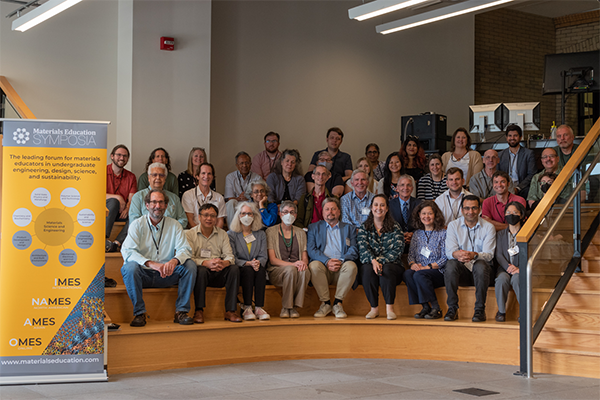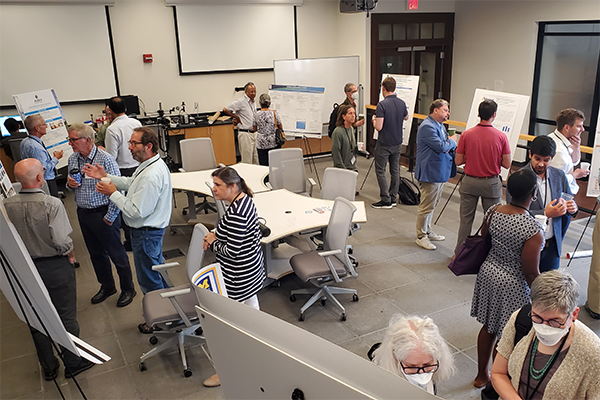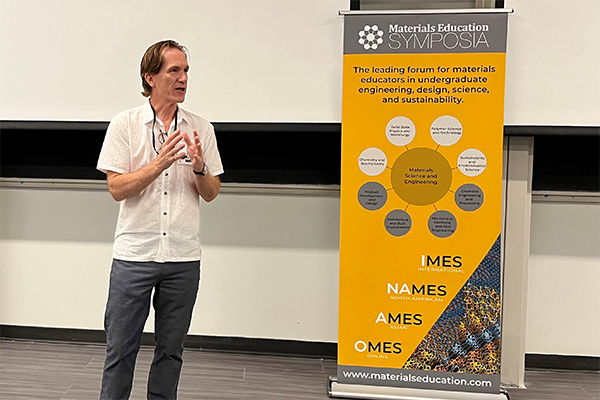Carnegie Mellon University hosts 11th North American Materials Education Symposium
Kaitlyn Landram
Sep 28, 2022
Carnegie Mellon University hosted the 11th North American Materials Education Symposium (NAMES), the first to be held in person since 2019. NAMES brings together materials educators from materials departments across North America to share ideas, innovations, experiences, successes and failures; to provoke productive discussion around these issues; and to expand the links that form such a key feature of the Materials Community.
In early August, around fifty materials science critical thinkers came together to discuss issues in materials science education curricula, the use of computational techniques and pandemic-imposed changes that are here to stay, such as routine recording of lectures and virtual meetings between research groups and sponsors.
Also at the symposium Elizabeth Holm, Professor Materials Science and Engineering, was presented the Mike Ashby Outstanding Materials Educator Award recognizing distinguished and exceptional contributions in materials science and engineering education on behalf of the Materials Division of American Society for Engineering Education.
In addition to poster sessions, roundtable discussions and a packed speaker program, attendees were encouraged to participate in two workshops to kick off the symposium:
- The Skateboard Design Workshop - Material Selection and FE Simulation introducing participants to two key tools for product development and design, Granta EduPack and Ansys Mechanical.
- Machine learning and AI for Materials Science Education Workshop supported by Citrine Informatics introduced participants to AI materials development by enabling them to perform an end-to-end AI modeling workflow on materials development data.
The North American Materials Education Symposium is supported by Ansys, whose engineering simulation software, including the Ansys- Granta EduPack, is widely used in materials education and widely used at CMU.
“The bringing together of educators and organizations such as Ansys, nanoHub, and ASM presents an unique opportunity to explore new teaching methodologies and platforms that can add great value to the student learning experience,” emphasized Robert Heard, teaching professor, Materials Science and Engineering and a member of the Scientific Steering Committee. Other members of the committee included Professor Elizabeth Holm, Professor Chris Pistorius, and Kelly Rockenstein, Center for Iron and Steelmaking Research Program Coordinator.NAMES presents a unique opportunity to explore new teaching methodologies and platforms that can add great value to the student learning experience.
Robert Heard, Teaching Professor, Materials Science and Engineering



